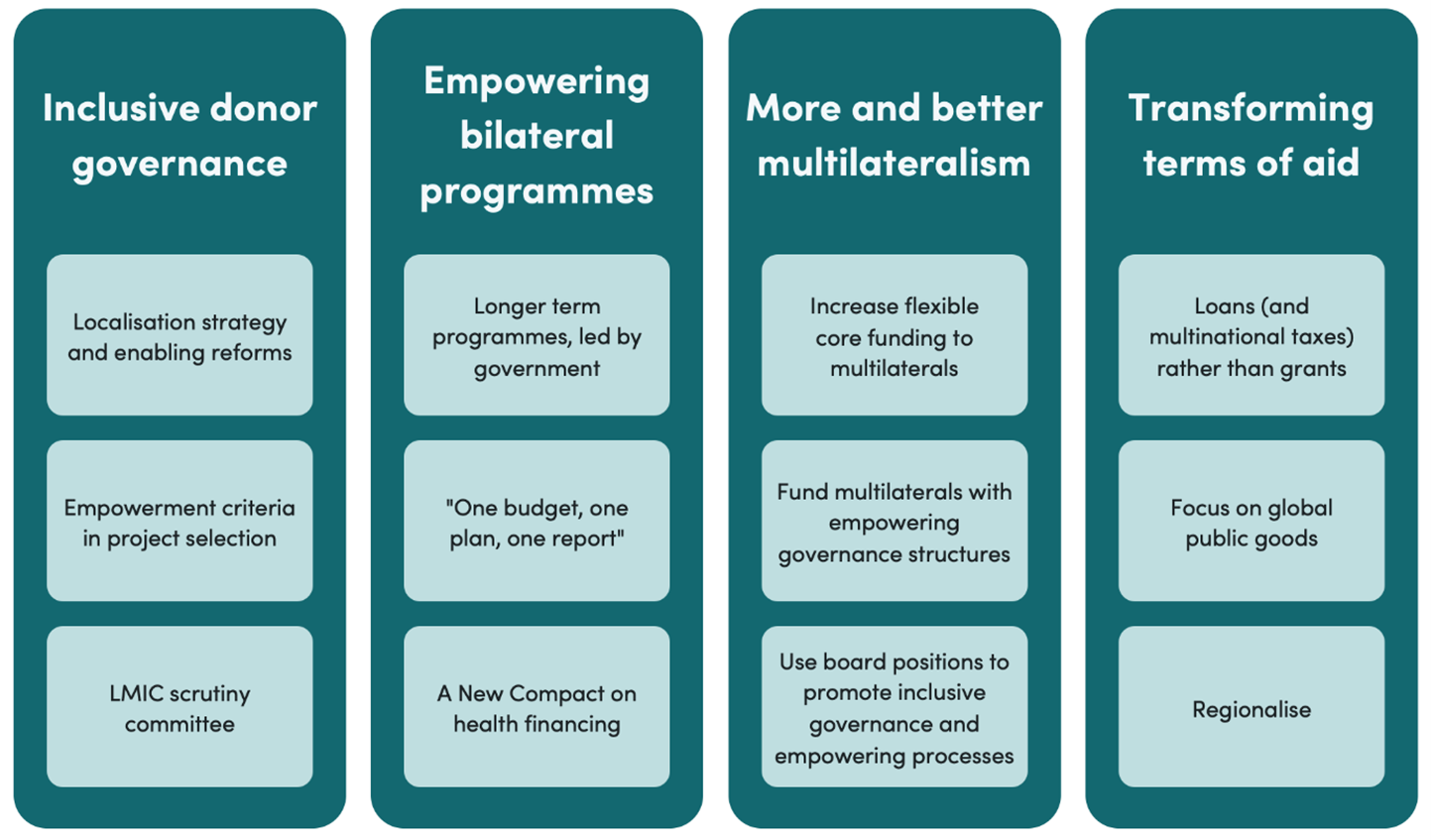The Republican Study Committee (RSC) has issued a list of proposed cuts to reduce federal spending by $2.5 trillion over ten years including nearly $1.4 billion from USAID. With the growing national consensus that budget deficits and national debt must be dealt with, lawmakers are laudably trying to turn campaign promises into the real thing. But, what the RSC proposes does not really cut foreign assistance, which is the presumable target. Instead, it cuts USAID’s ability to manage already appropriated funds. (Full disclosure: I am a Republican who spent most of my career working for Hill Republicans.)The RSC proposes saving $1.39 billion annually by deleting funds for USAID’s Operating Expenses – funds used to manage programs and pay salaries. Except for a modest cut in aid to Egypt ($250 million out of $1.3 billion) and wiping out the entire Trade and Development Agency ($55 million), the proposal does not cut foreign assistance. This raises the question: is the RSC skeptical of foreign aid? Or does it want another agency to administer aid?If it’s the former – the aid down a rat hole argument that was popularized by Senator Jesse Helms (and then refuted through his support of PEPFAR) – then why no cuts to actual aid? If it’s the latter – the merge-USAID-into-State argument that has been rejected by nearly every informed observer without regard to partisan label – then why not just say so? If doing away with USAID is the aim, then do it transparently and in a way that transitions programs to another agency, presumably State.After all, the merger of the U.S. Information Agency into the State Department did such wonders for U.S. public diplomacy (I'm still searching for the sarcasm emoticon) that even the Heritage Foundation is calling for the creation of “a separate center or agency for public diplomacy and strategic communication.”As it stands, the proposed cut chops one of the legs off the three-legged stool as articulated first in President Bush’s National Security Strategy. President Bush elevated development to reside along with defense and diplomacy as the foundations for protecting U.S. national security.Fortunately, there are many Members of both parties who understand that necessary cuts should be constructive rather than gratuitously punitive. So if $1.4 billion is the target, here’s my top five list of where to look for savings:
- Work with Administrator Shah on his already implemented reforms aimed at achieving savings and better efficiencies. At a recent speech hosted by CGD, Shah outlined a number of savings. Closing some posts, graduating nations from assistance, cutting certain costly senior positions, and procurement reform could easily cut $150 million.
- End the Assistance to Europe, Eurasia, and Central Asia program. President Bush proposed phasing out aid to central and eastern Europe; instead the program spends roughly $700 million a year.
- The Democracy Fund gets $120 million a year and is a duplication of other programs. Everyone likes democracy, but democracy and governance programs are already funded from other accounts.
- Cut assistance to countries that clearly don’t need U.S. aid – like China ($27 million in FY2010).
- The Economic Support Fund request for FY2011 is $7.8 billion. Seems to me a ten percent reduction is reasonable -- $780 million.
Total savings: $1.77 billion.And for the bonus round, Congress could reform U.S. food aid programs – cargo preference, local and regional procurement limitations, and the monetization of food aid that the GAO estimates adds up to 30 percent to the cost of buying and shipping food. Food aid programs run about $2 billion a year; 30 percent is
$600 million.Those are my off-the-cuff suggestions for cost savings that adhere to the recent rhetoric of being more selective in what the U.S. does and where. Perhaps some will object? Then let’s have a conversation about what works well and what doesn’t with the goal of making decisions based on evidence of effectiveness…exactly what Administrator Shah is trying to do.
CGD blog posts reflect the views of the authors, drawing on prior research and experience in their areas of expertise.
CGD is a nonpartisan, independent organization and does not take institutional positions.





